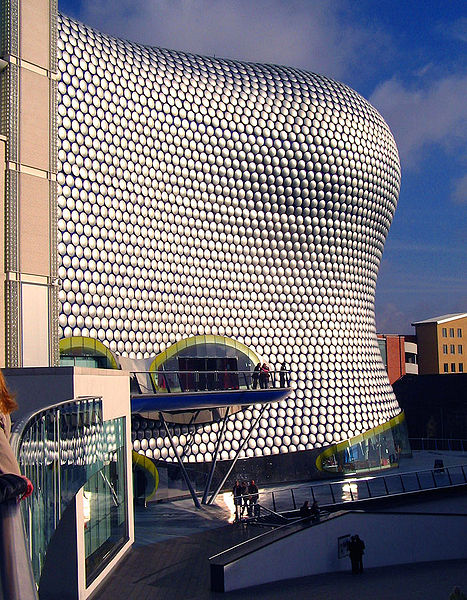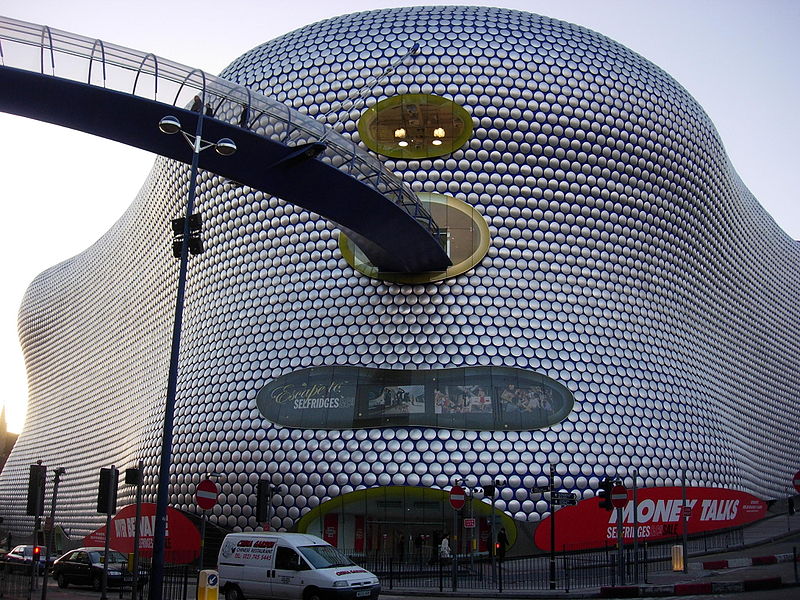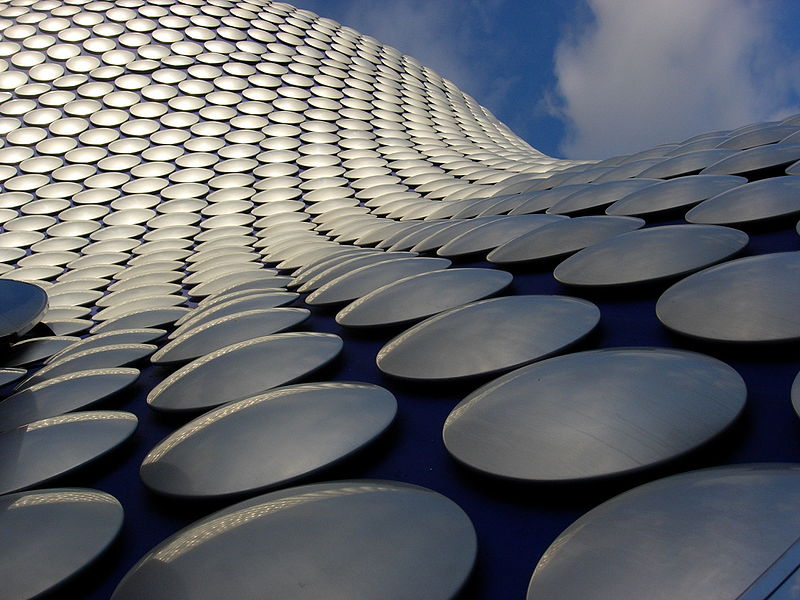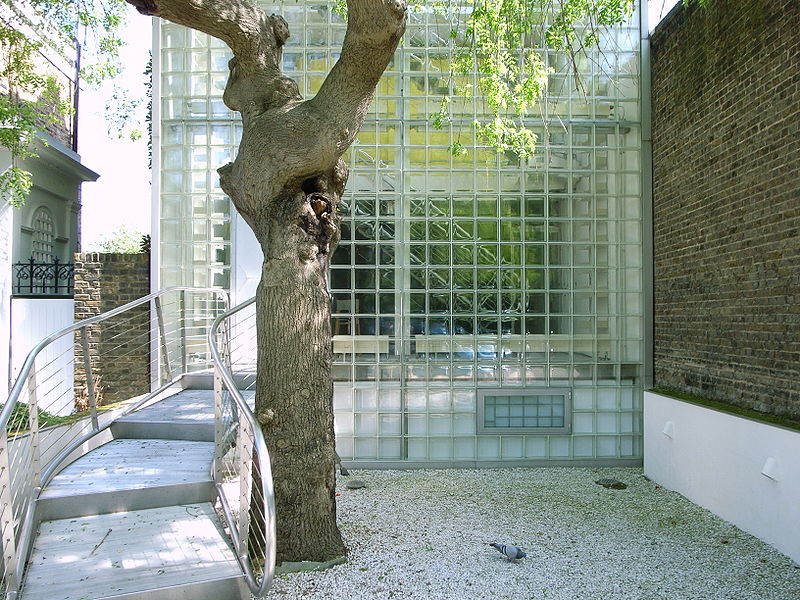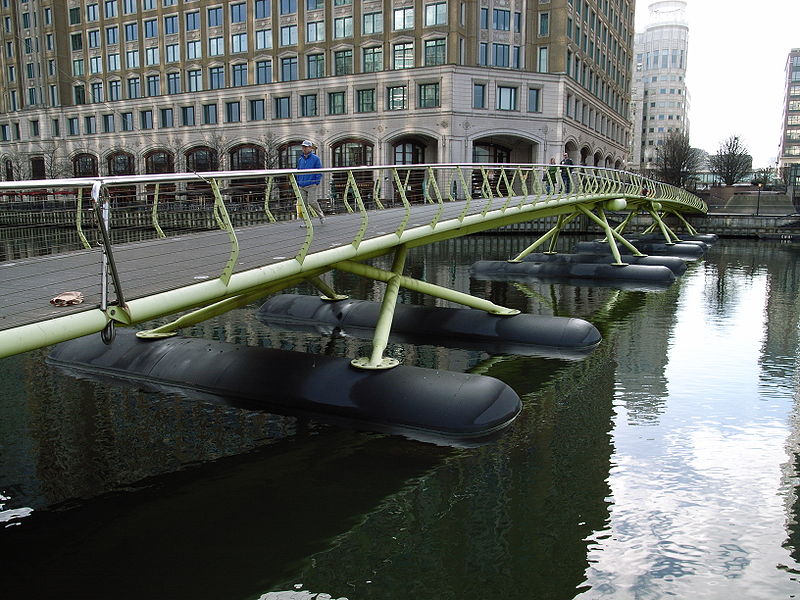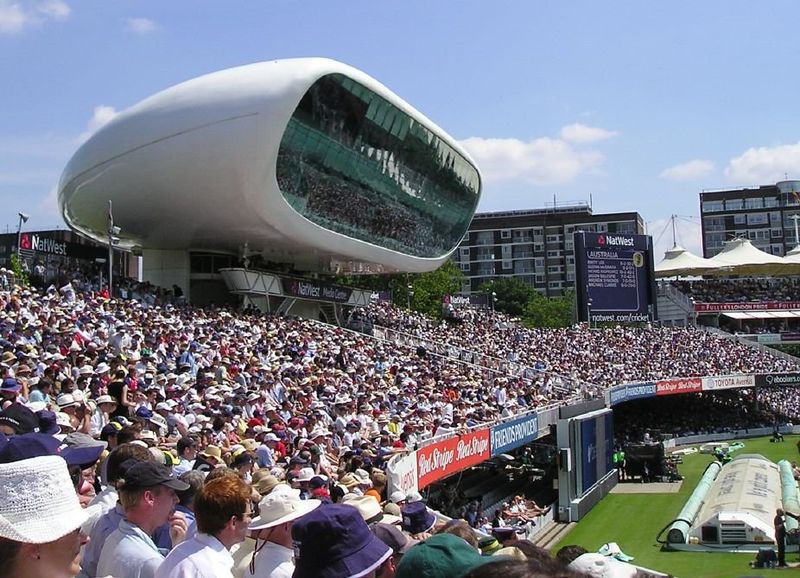<Back to Index>
- Mathematician Lars Valerian Ahlfors, 1907
- Architect Jan Kaplický, 1937
- Président de la République Française Louis-Adolphe Thiers, 1797
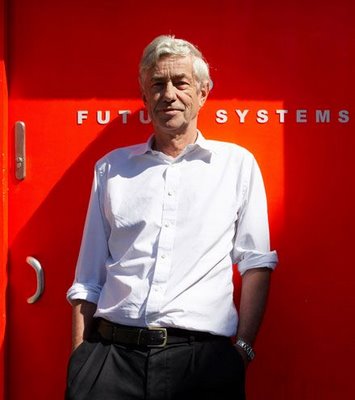
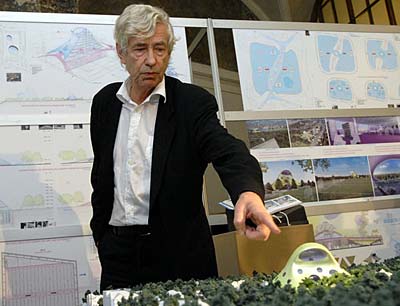
Jan Kaplický (18 April 1937 – 14 January 2009) was a world-renowned Czech architect who spent a significant part of his life in the United Kingdom. He was the leading architect behind the innovative design office, Future Systems. He was best known for the futuristic Selfridges Building in Birmingham, England, and the Media Centre at Lord's Cricket Ground in London. In February 2007, he won the international architectural competition for the new building of the National Library of the Czech Republic in Prague, a project that was subsequently cancelled.
Jan Kaplický, the only child of a sculptor and a botanical illustrator, was born on 18 April 1937 in Prague, Czechoslovakia, and grew up in a suburb of Prague called the Ořechovka Quarter. Between
1956 and 1962 he studied at the College of Applied Arts and
Architecture and Design (VSUP) in Prague, receiving a Diploma in
Architecture. He worked in private practice in Czechoslovakia between
1964 and 1968. In the wake of the Prague Spring, the Soviet invasion of Czechoslovakia, he escaped to London in September 1968 with fellow architect Eva Jiřičná, then his girlfriend, carrying only US$100 and a few pairs of socks. In England, Kaplický first worked for Denys Lasdun and Partners (1969–1971), then obtained employment with the office of Renzo Piano and Richard Rogers (1971–1973), with whom he developed the competition-winning design for the Centre Georges Pompidou (constructed 1971–1977) in Paris.
When the practice relocated to Paris, he was unable to follow as at
that time he still did not have a British passport. After working with
Jiřičná, and a short spell at Spencer and Webster, Associates
(1974–1975), he joined Foster Associates, now Foster and Partners (1979–1983). At the same time, in 1979 Kaplický set up his own architectural think tank called Future Systems with David Nixon, and began to develop an architectural style that combined organic forms with high tech futurism.
Among the drawings he made were structures orbiting the earth built by
robots, weekend houses resembling survival capsules that could be
transported by helicopter, and home interiors that could be
manipulated. In the 1980s his design for the Grand Buildings in Trafalgar Square, London, was a free-form monocoque structure pierced by portholes; it lost to a more conventional reconstruction of an Edwardian facade. Kaplický told Business Week in 2005: "Where is it written that buildings have to be boxes? People aren't boxes." Amanda Levete joined
Future Systems as a partner in 1989. Kaplický and Levete married
in 1991 and were a couple for 15 years; they had a son named Josef. Although they divorced in 2006, they
continued their professional association in the architectural practice,
saying that the separation strengthened their working relationship. Although
Kaplický was a finalist for the Prince Philip Prize for designer
of the year in 1991, for the first 15 years of its existence Future
Systems received few commissions, and it was not until 1994 that the
company was commissioned to build the new media centre at Lord's Cricket Ground which eventually won the Royal Institute of British Architects (RIBA) Stirling Prize – considered the most prestigious architecture award in the UK – in 1999 and the World Architecture Awards in 2001. Kaplický
considered the media centre "my favourite creation", saying, "It is
something which was revolutionary in many areas – a real technical
achievement – but above all, the people operating inside it have said:
'We love it,' and that's great." In 2000, he was made an Honourable Fellow of RIBA. Future Systems' next major project, the iconic Selfridges Building in the Bull Ring in Birmingham,
won seven awards, including the RIBA Award for Architecture 2004. That
year, Kaplický was the subject of a Czech documentary entitled Profil (Profile). In
2007, Kaplický won the design competition for the new Czech
National Library building. This was to have been his first major
building in his home country, and he said the project was the most
important event in his life. However,
the design for the building, resembling a green and purple blob and
nicknamed by locals "the Octopus", was heavily criticized. President of the Czech Republic Václav Klaus was
overheard saying he would be willing to prevent the building going
ahead with his own body; his spokesman later clarified it was an
off-hand remark that had not been meant to be taken seriously. Pavel Bém, the Civic Democrat Mayor
of Prague, supported the design when it was selected but later became
hostile to it, saying that the City Council of Prague, which is
dominated by the Civil Democratic Party, would not allow the Octopus to
be built as it would ruin Prague's panorama. Vlastimil
Jezek, a former director of the Library, regarded Kaplický as
"another protagonist of Czech culture who has been crushed by Czech
narrow-mindedness." Although the design was eventually dropped, Kaplický remained hopeful
that the building would be built through funds from a private
foundation established for this purpose. Apart from his design work, Kaplický was active in the education of architects. He taught from 1982 to 1988 at the Architectural Association School of Architecture, the oldest independent architectural school in the UK, and in 1992 at the School of Architecture in Bordeaux and at the Design Workshop of the Technische Universität Berlin. He was also an external examiner for
the Architectural Association between 1995 and 1998, and in 2000 was an
assessor for the Domus Awards of the B.B.J. Competition in Milan. In
October 2008, news broke that Kaplický and Levete intended to go
their separate ways after having collaborated professionally for 20
years. Kaplický was due to keep the Future Systems practice name. Towards
the end of his life, Kaplický began to spend more time in the
Czech Republic, where he was awaiting the construction of the Czech
National Library and where his design for the Congress and Concert Hall Centre in České Budějovice (Budweis) had been approved. He married the film producer Eliška
Kaplická Fuchsová in 2007. On 14 January 2009, hours
after the birth of his daughter Johanna Kaplická, he collapsed
on a street in Prague near Vítězné náměstí
(Victory Square) with heart failure and could not be revived by
emergency services. The
city authorities of Budweis have announced their determination to
obtain funding to finally build a Kaplický building in his
native Czech Republic. In a 2002 interview with The Observer,
Kaplický said: "The world is full of beautiful things, and you
have to be observant as an architect – if not, you are in trouble.
Creativity is everywhere. ... The initial idea for a job comes to me
literally just like that sometimes, and if that first idea is good then
you are on the right track. It's not a sign of creativity to have 65
ideas for one problem, that's just a waste of energy. I also don't
think you need to go anywhere particular to be creative; people just
use that as an excuse. But I do think a lot of creativity depends on
your relationships with other people, your personal relationships, your
partner or whatever. Your personal happiness or unhappiness comes out
in your work, it's a reflection of your emotional state and you can't
separate the two."
